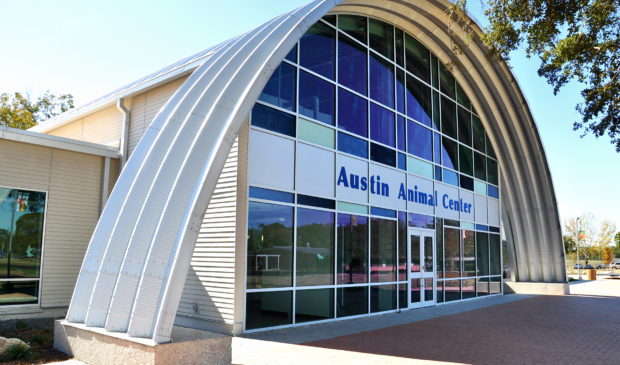Community concerns with teeth: Council postpones vote on animal-related code changes
Wednesday, September 25, 2019 by
Jessi Devenyns Austin is the largest no-kill city in the country and residents would like to keep it that way. Yet some have expressed concern that maintaining the animal shelter’s no-kill status could come at the expense of community safety.
Although much of the draft code changes remain uncontroversial and there is support for the current draft from the Austin Animal Center, City Council voted to postpone the first reading until Oct. 17. Council members Kathie Tovo, Ann Kitchen and Leslie Pool voted against the motion.
A particular point of conflict are the updates proposed around pet euthanasia, which some animal advocates feel may prioritize saving animals at the expense of human safety.
At last Thursday’s Council meeting, local animal advocate Liz Carrasco told Council members that the passage of the ordinance with as-written changes was rushed and that “a portion of the changes that you and APA (Austin Pets Alive!) are proposing is similar to legislation that has failed to pass in seven states, including Texas.”
She pointed to the modified euthanasia guidelines.
The draft ordinance says in the case of a dog with a documented history of unprovoked biting who has severely injured a person, the city will not require two business days for shelter staff to try to notify rescue organizations or the animal’s finder that the dog is scheduled for euthanasia. Nor will the city mandate euthanasia. A severe injury is defined as “broken bones, permanently disfiguring lacerations requiring multiple sutures or cosmetic surgery, other surgery or nerve damage.”
Carrasco asked, rhetorically, “Does save rate percentage take precedence over community safety?”
Other animal advocates took note of this language and called for the word “severe” to be removed, saying the term as currently defined is too high of a threshold and could potentially allow a dangerous animal with a history of biting back into homes.
However, Brenda Collier, who was representing the rescue agency Final Frontier, which takes dogs at imminent risk of being euthanized due to behavior problems, said, “We’re shut out of this process because we’ve raised too many questions.” In her testimony, she said that members of Final Frontier had been refused a meeting with new Chief Animal Services Officer Don Bland to discuss the ordinance language. The organization would like to see specific consideration for dogs with behavior issues that lead to biting.
Ryan Clinton, a member of the Austin Animal Advisory Commission, called this section of the ordinance a “compromise” and explained that these updates have been more than a year in the making.
Multiple members of the community called for a postponement of Council’s first reading, citing a lack of public process.
Carrasco showed Council members video clips going back to last summer where the public was not invited to participate in the conversation. She blamed the posting language for the confusion, saying it was not clear that the commission was discussing ordinance amendments since the item on the agenda was labeled “Increasing Live Outcomes.”
Council Member Leslie Pool remarked on her editing skills and said there was “significant” conversation on the topic that was not depicted in the video.
“If there are things (in the ordinance) that need to be modified later, let’s just correct it later,” Clinton said. “This is not set in stone. This is not a commandment. This can be revised.”
He also noted that he had not heard of any complaints about the process until two days before the Council hearing. He called the groundswell of complaints about the lack of public process a “hit job.”
“From the Council’s end, I don’t think we’ve rushed through this at all,” said Council Member Pool.
Without the proposed changes being codified, Ellen Jefferson, the executive director of Austin Pets Alive! said, “There’s literally nothing codifying what we do to keep Austin a no-kill city.”
Last year Austin achieved a 98 percent no-kill rate, the highest in the country.
Photo by SteelMaster Buildings made available through a Creative Commons license.
The Austin Monitor’s work is made possible by donations from the community. Though our reporting covers donors from time to time, we are careful to keep business and editorial efforts separate while maintaining transparency. A complete list of donors is available here, and our code of ethics is explained here.
You're a community leader
And we’re honored you look to us for serious, in-depth news. You know a strong community needs local and dedicated watchdog reporting. We’re here for you and that won’t change. Now will you take the powerful next step and support our nonprofit news organization?










